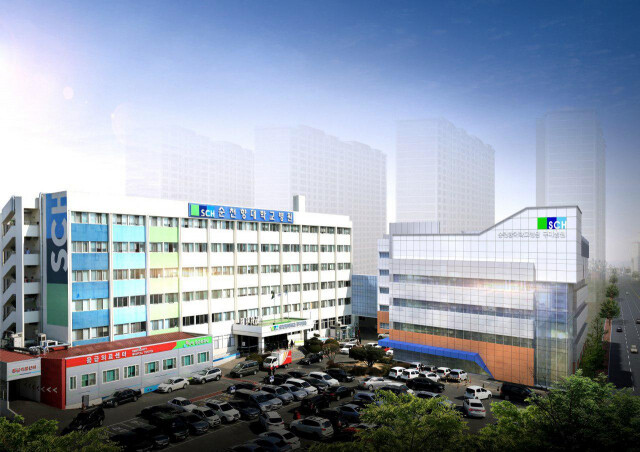
Gimhae, South Korea – In a significant display of cross-border medical cooperation, Soonchunhyang University Hospital (SUH), which has maintained a two-decade relationship with Cambodia, recently conducted free health screenings for Cambodian workers residing in Gimhae. The initiative, part of a collaborative program with the Royal Embassy of Cambodia to the Republic of Korea, took place on May 24th at the Gimhae Public Health Center. This outreach specifically targeted foreign workers, who often face substantial barriers to accessing medical services in South Korea.
The event saw a robust turnout, with over 80 Cambodian workers braving inclement weather to receive care. A total of 350 specialized health consultations and examinations were provided, addressing a range of medical needs. This initiative underscores Soonchunhyang University Hospital's commitment to its founding philosophy of "Human Love," extending its healthcare mission beyond local communities to contribute to universal healthcare access on an international scale.
A Comprehensive Medical Outreach
To ensure comprehensive care, Soonchunhyang University Hospital dispatched a large medical team of 29 professionals from Soonchunhyang University Seoul Hospital. This diverse team included specialists in cardiology, obstetrics and gynecology, dentistry, ophthalmology, and otolaryngology, providing a wide array of expert consultations and basic examinations.
The success of the health fair was also significantly bolstered by crucial external support. Kyung Hee University Medical Center and the Korea International Cooperation Agency (KOFIH) provided two mobile examination vehicles, along with essential medical equipment such as ultrasound machines and electrocardiographs, and necessary pharmaceuticals. This collaborative effort ensured that the screenings were thorough and effective, bridging critical gaps in healthcare access for the Cambodian migrant community.
High-Level Support and Enduring Partnership
The event drew notable attendees, including Gimhae Mayor Hong Tae-yong and Cambodian Ambassador to South Korea Chheang Botumrangsay, both of whom personally visited the site to encourage the Cambodian workers and express gratitude to the medical staff.
Ambassador Chheang Botumrangsay lauded the initiative as a testament to the strong healthcare cooperation between the two nations. "This event is a significant outcome of the health and medical cooperation between our two countries, and a result of the warm hearts extended towards our people," said Ambassador Botumrangsay. "I sincerely thank the medical team, and I look forward to continued exchange and cooperation in the future."
Dr. Park Byung-won, head of the Soonchunhyang University Seoul Hospital Medical Volunteer Group and a cardiologist, echoed these sentiments. "It is gratifying that Soonchunhyang, while putting great effort into the development of Cambodian healthcare, can also contribute to the health of Cambodian workers residing in Korea," he remarked, reaffirming the hospital's commitment to ongoing collaboration.
Deep Roots in Cambodia and Future Prospects
Soonchunhyang University Hospital's connection with Cambodia spans more than two decades, fostered through its involvement with the Korea-Cambodia Volunteer Association (Han-Kam Volunteer Association). This enduring relationship has seen SUH actively participate in South Korea's Official Development Assistance (ODA) projects in Cambodia, contributing significantly to the improvement of the country's healthcare infrastructure and services. The hospital has consistently provided medical assistance and educational programs, helping to train local medical professionals and enhance healthcare delivery within Cambodia itself. This history of deep engagement makes the current outreach to Cambodian workers in Korea a natural extension of their long-standing humanitarian mission.
The free health screenings in Gimhae are a critical response to the unique health challenges faced by migrant workers. These individuals often work in demanding conditions, have limited understanding of the local healthcare system, and may face language barriers or financial constraints that prevent them from seeking timely medical attention. Providing proactive health check-ups helps in early detection of potential health issues, offers preventive care, and builds trust between the migrant community and local healthcare providers.
Looking ahead, this event sets a precedent for future collaborations. The success of this joint effort between a major Korean medical institution, local government, an embassy, and other support organizations highlights the potential for sustained and expanded healthcare initiatives for migrant populations in South Korea. Such programs are vital for ensuring the well-being of foreign workers who contribute significantly to the Korean economy, while also strengthening diplomatic and humanitarian ties between nations.
[Copyright (c) Global Economic Times. All Rights Reserved.]






























